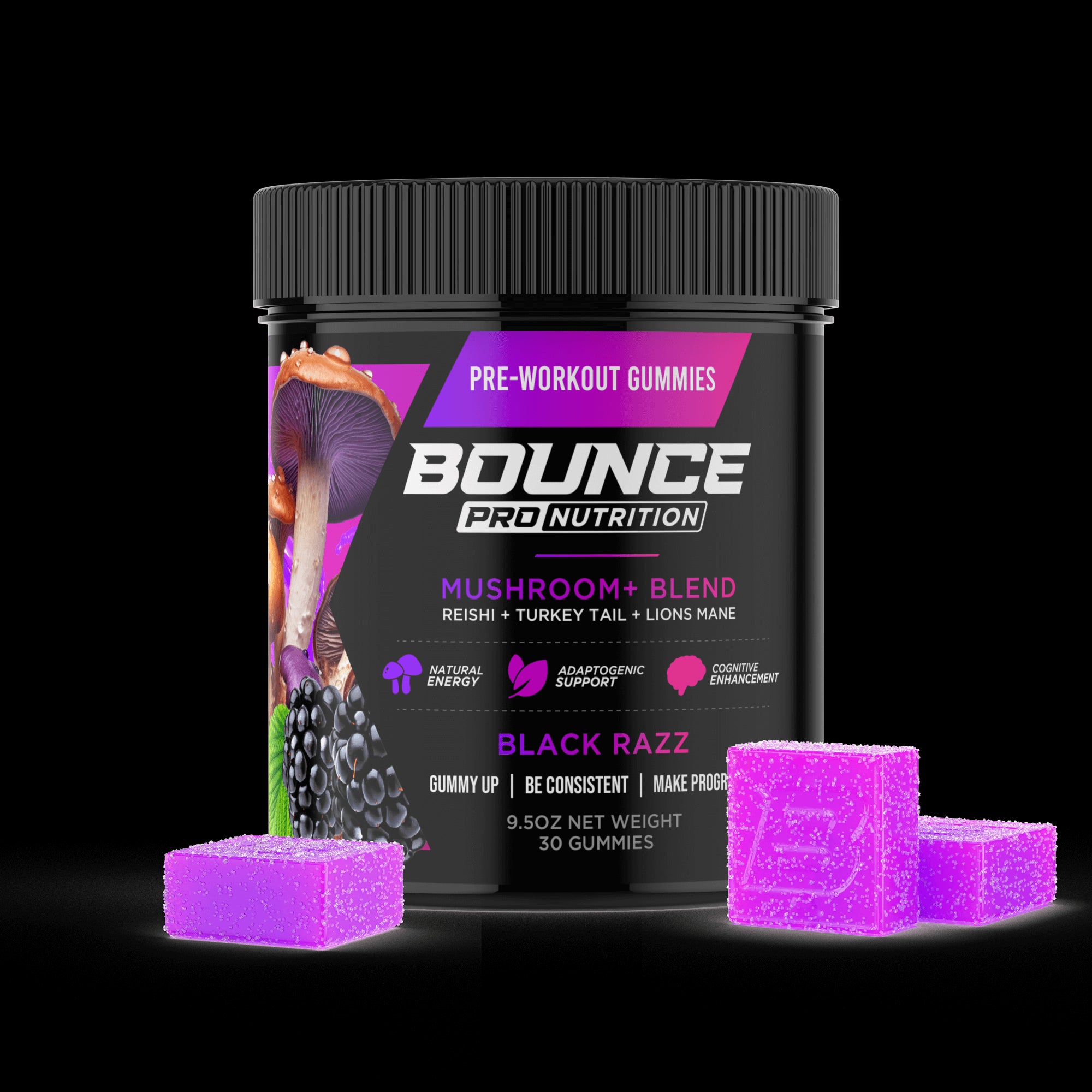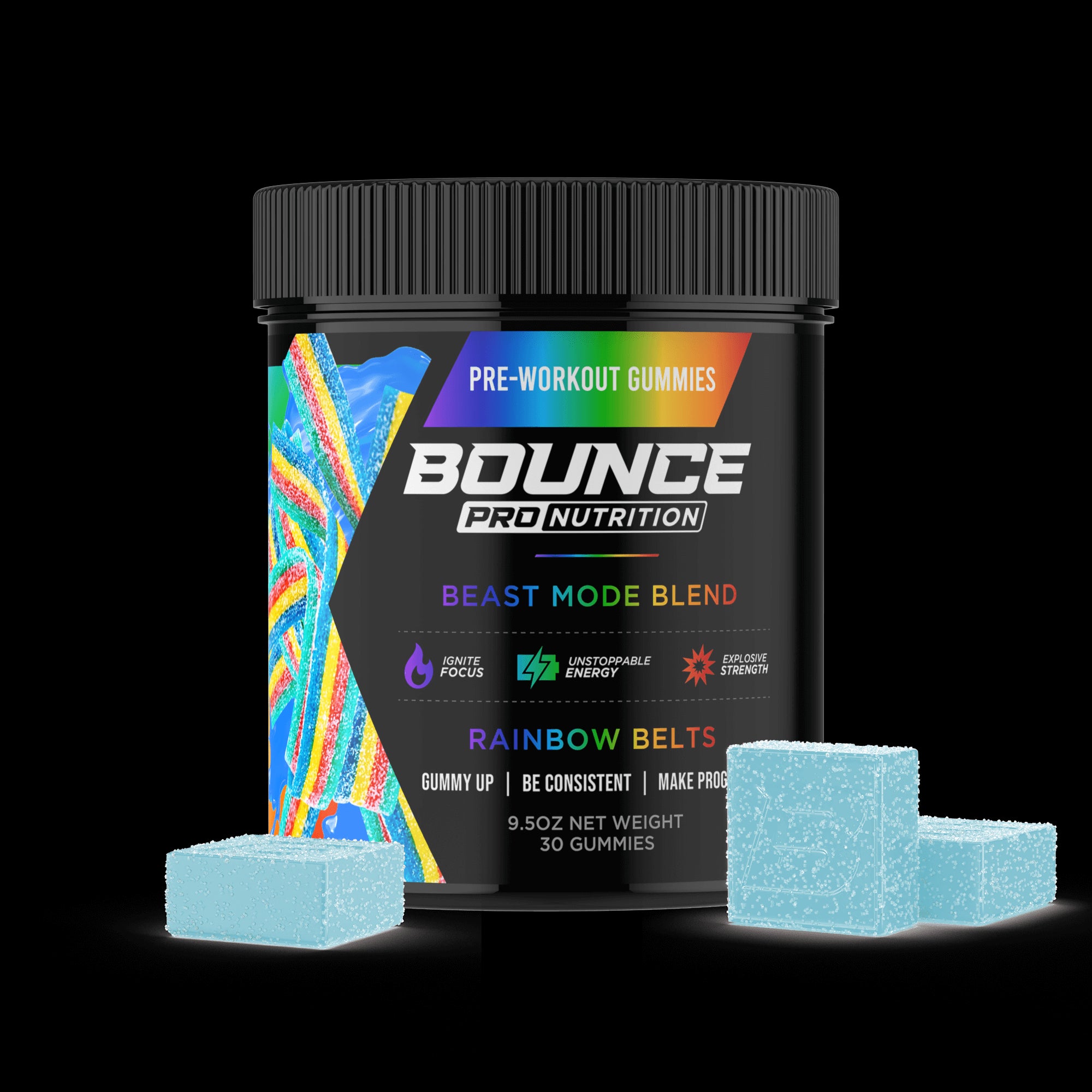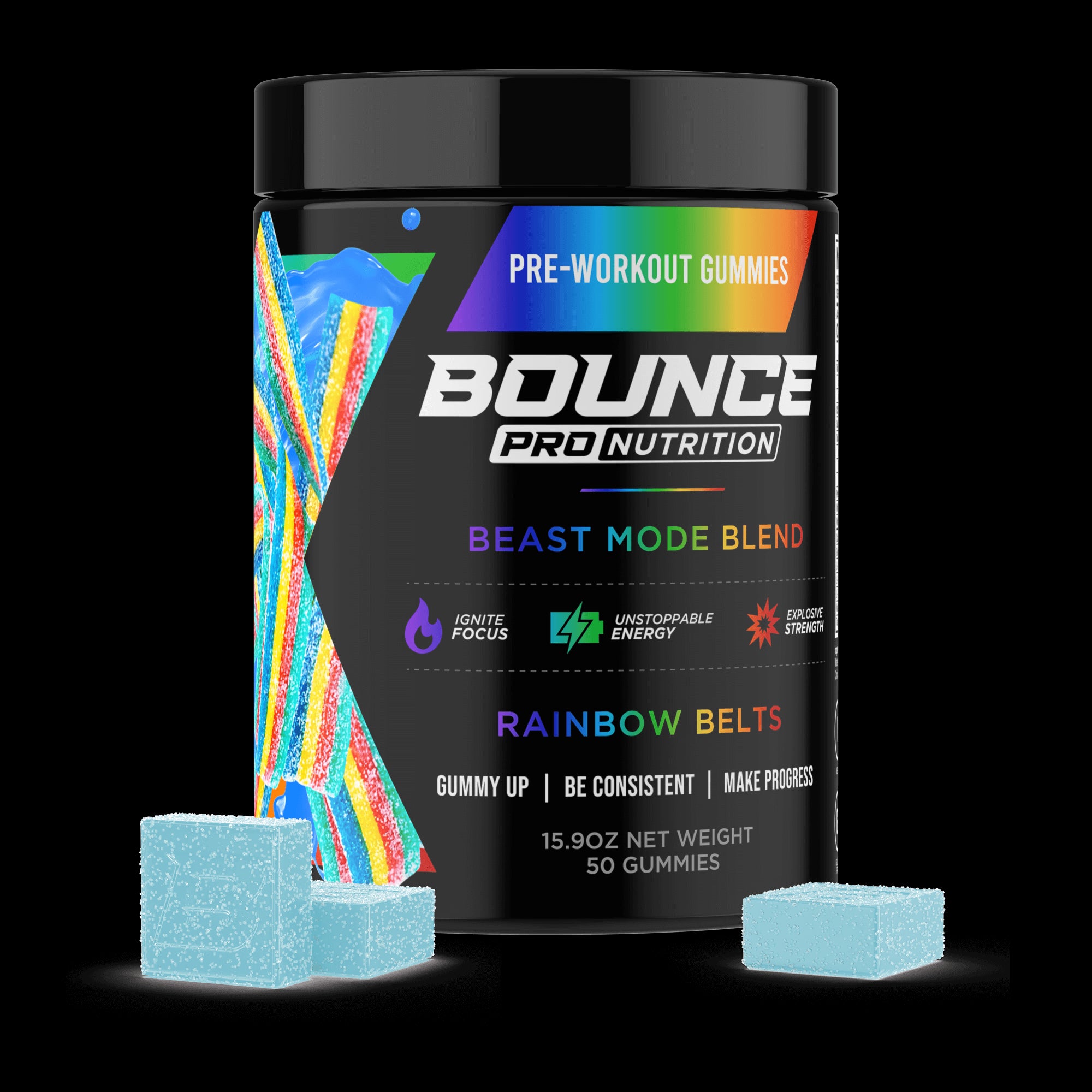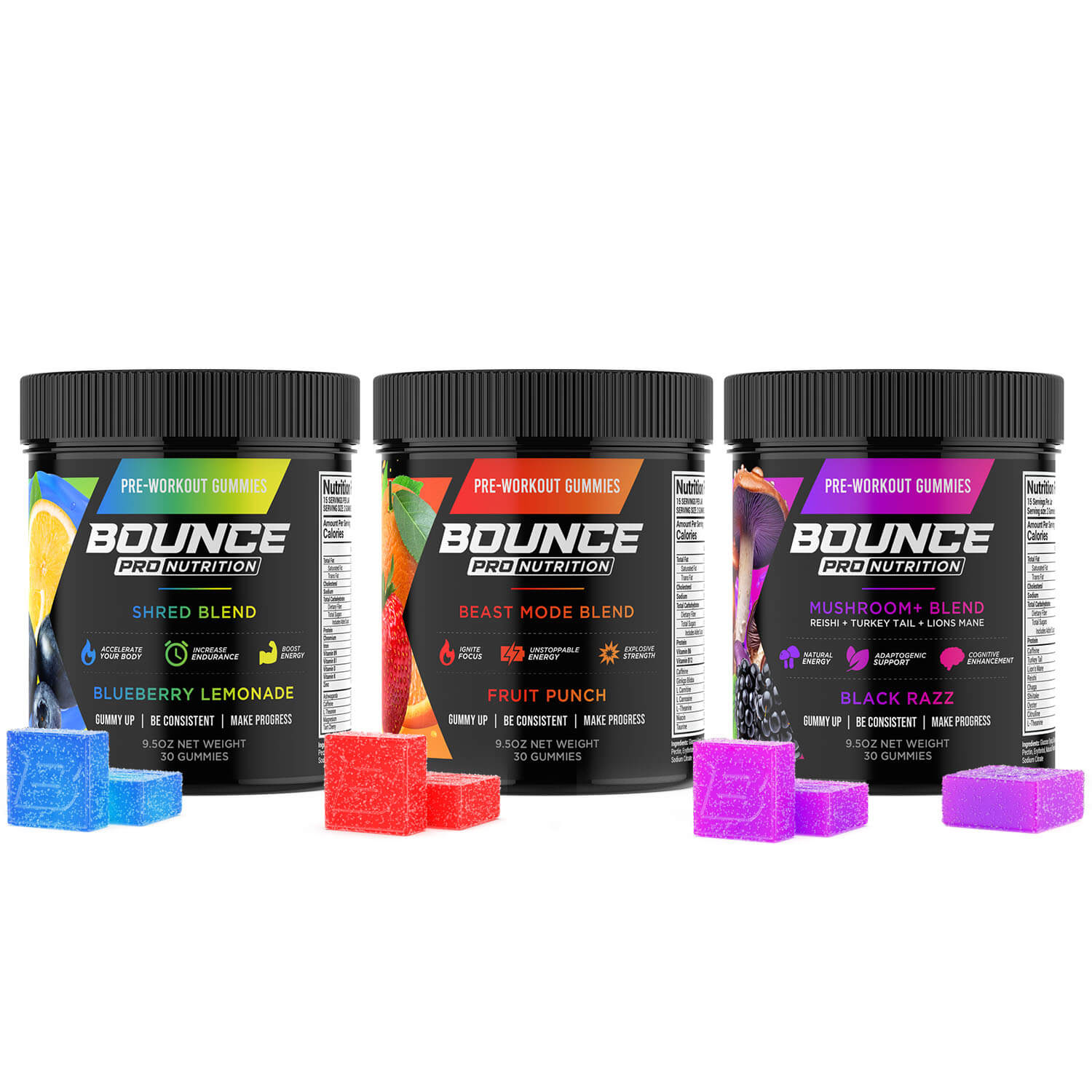In the ever-expanding universe of wellness products, few have managed to capture our attention with such a friendly and approachable appeal as the humble gummy. These chewy, flavorful bites promise to deliver essential nutrients in a package that feels more like a treat than a task, making them an instant favorite for many.
Electrolyte gummies, in particular, have soared in popularity, positioned as the perfect, portable solution for post-workout recovery, afternoon slumps, and general hydration support. They represent the ultimate in convenience, a simple way to address a complex physiological need.
Yet, within this narrative of ease and benefit, it becomes important to pause and consider the full picture. The principle that "more is not always better" holds particularly true in the delicate dance of our body's internal chemistry. Understanding that even the most beneficial substances have rules of engagement is key to harnessing their advantages without inadvertently tipping the scales in the wrong direction.
TO BUY ELECTROLYTE GUMMIES CLICK HERE
What are Electrolyte Gummies?
At their core, electrolyte gummies are a novel and highly convenient form of nutritional supplement designed to replenish the body's essential mineral salts. They are typically made from a base of gelatin or a plant-based alternative like pectin, which is then infused with a specific formulation of electrolytes and often other ingredients like vitamins, sugars, or natural flavorings.
This chewable format presents a significant departure from the traditional electrolyte powders and sports drinks, eliminating the need for mixing, measuring, or carrying bulky bottles. The primary purpose of these gummies is to provide a quick, accessible, and easily digestible source of the minerals lost through sweat, illness, or inadequate dietary intake.
They have successfully bridged the gap between a functional athletic supplement and a mainstream wellness product, offering a simple and enjoyable method for anyone to be more proactive about maintaining their body's crucial mineral balance, whether they're a marathon runner or an office worker.
To truly understand the function of these gummies, one must first grasp the critical role of electrolytes themselves – these aren’t just abstract ingredients listed on a label; they are essential minerals that carry an electric charge when dissolved in the body's fluids. This electrical potential is the engine behind a vast number of vital bodily functions. The main electrolytes—sodium, potassium, magnesium, calcium, chloride, and phosphate—act as the master regulators of our internal environment.
They are indispensable for facilitating nerve impulses, allowing the brain to communicate with the rest of the body. They are also required for every single muscle contraction, from the blinking of an eye to the powerful beat of the heart. Furthermore, electrolytes, particularly sodium and potassium, are the primary drivers of fluid balance, dictating how water is distributed throughout our cells and ensuring proper hydration on a cellular level.
The marketplace for electrolyte gummies has diversified considerably, catering to a wide spectrum of consumer needs, dietary preferences, and specific goals. A major point of differentiation among products is the type and amount of sweetener used. Some formulations contain simple sugars like glucose or fructose, which can provide a quick source of energy, making them suitable for use during intense physical activity.
In response to consumer health trends, a large and growing number of brands now offer sugar-free versions, which utilize sugar alcohols like erythritol and xylitol or natural sweeteners such as stevia and monk fruit. Beyond sweetness, the mineral profiles can be highly variable. Some are balanced for general daily use, while performance-focused gummies might contain higher levels of sodium to more accurately replace sweat losses.
Many are also fortified with synergistic nutrients, such as Vitamin B complex to support energy metabolism or Vitamin C and zinc to bolster the immune system, transforming a simple electrolyte product into a multi-faceted functional supplement.
What Potential Side Effects Could Electrolyte Gummies Have?
While electrolyte gummies are designed to be beneficial and are generally considered safe when used as directed, it is crucial to recognize that they are concentrated sources of minerals. The very effectiveness of these gummies in delivering electrolytes is also what necessitates a mindful and responsible approach to their consumption.
The potential for side effects typically does not arise from casual, appropriate use but rather from overconsumption, misuse, or in individuals with specific pre-existing health conditions that affect mineral processing. Our bodies, particularly the kidneys, are incredibly adept at maintaining a precise electrolyte balance, filtering out what is not needed.
However, this system can be overwhelmed if it receives an excessively large dose of minerals at once, leading to an imbalance that can manifest in a variety of physical and even mental symptoms.
Electrolyte Side Effects List
The physical manifestations of consuming too many electrolytes are often the first and most noticeable signs that the body's internal balance has been disturbed. These symptoms are a direct result of the physiological stress caused by an excess of minerals like sodium, potassium, or magnesium. Here are some of the potential physical side effects to be aware of:
- Gastrointestinal Distress: This is perhaps the most common side effect associated with the overconsumption of electrolyte gummies, and it can be attributed to two main factors. Firstly, a sudden, high concentration of minerals in the gut can have an osmotic effect, drawing excess water into the intestines. This influx of water can lead to uncomfortable symptoms like diarrhea, cramping, and bloating. Secondly, many sugar-free gummy varieties contain sugar alcohols such as xylitol, sorbitol, or erythritol. While these sweeteners are great for reducing calorie content, they are not fully absorbed by the body and can be fermented by gut bacteria, producing gas and leading to further bloating and digestive discomfort, particularly in individuals with sensitive digestive systems.
- Elevated Blood Pressure: Sodium is a critical electrolyte, but it is also the one most directly linked to blood pressure regulation. When you consume an excessive amount of sodium, your body retains more water in an effort to dilute the mineral and maintain balance in the bloodstream. This increase in fluid volume within your blood vessels directly translates to higher blood pressure, as there is more liquid pushing against the artery walls. For a healthy individual, a single instance of overconsumption might not be a major concern, but for those with pre-existing hypertension or a sensitivity to sodium, regularly consuming too many sodium-rich electrolyte gummies can exacerbate their condition and work against their health goals, making it essential to read labels carefully.
- Strain on the Kidneys: The kidneys are the master chemists of the body, working tirelessly to filter your blood, remove waste products, and excrete excess minerals to maintain a stable internal environment. When you ingest a large quantity of electrolytes, you are essentially giving your kidneys a much bigger job to do. They must work harder to filter out the surplus sodium, potassium, and other minerals to prevent them from building up to dangerous levels in the blood. For individuals with healthy kidneys, this is usually manageable. However, for those with any degree of chronic kidney disease or impaired renal function, this additional workload can be harmful, potentially accelerating the decline in kidney function over time.
- Bloating and Water Retention: Closely related to the effect on blood pressure, the water retention caused by excess sodium intake can lead to a noticeable and uncomfortable feeling of bloating. This condition, known as edema, can manifest as puffiness in the face, hands, and feet, and a general feeling of heaviness. The body holds onto extra fluid in the tissues to buffer the high concentration of sodium, disrupting the normal fluid balance that electrolytes are meant to support. While this is often a temporary side effect that resolves, as the kidneys process the excess sodium, it can be particularly uncomfortable and is a clear physical sign that you have consumed more electrolytes than your body currently needs.
- Potential for Heart Rhythm Disturbances: This is a more serious, though less common, potential side effect of severe electrolyte imbalance. The heart's rhythm is controlled by precise electrical impulses that are entirely dependent on the correct balance of potassium, calcium, and magnesium. A condition known as hyperkalemia, or dangerously high potassium levels, can interfere with the heart's electrical signaling, potentially leading to irregular heartbeats (arrhythmias), palpitations, or, in extreme and rare cases, more severe cardiac events. This risk is highest in individuals with underlying kidney or heart conditions and is typically associated with a very large overconsumption of potassium-rich supplements, highlighting the importance of adhering strictly to recommended serving sizes.
Potential Side Effects of Electrolyte Gummies Mentally
The intricate connection between the body's mineral balance and the brain's function means that a significant electrolyte imbalance can have noticeable effects on your mental state. The brain is exquisitely sensitive to its chemical environment, and disruptions can manifest in various cognitive and emotional symptoms, such as:
6. Feelings of Restlessness and Anxiety: Our nervous system relies on a delicate equilibrium of electrolytes to function properly. A sudden, sharp increase in certain minerals, particularly sodium, can over-excite the nervous system, disrupting its normal signaling patterns. This can manifest as a feeling of being "on edge," jittery, or unable to relax. This state of heightened nervous system activity can mimic the body's stress response, potentially leading to increased feelings of anxiety or agitation. It's the mental equivalent of the body's physical systems being thrown into overdrive, creating a sense of unease and preventing a state of calm focus.
7. Paradoxical Headaches: While electrolyte solutions are often used to alleviate headaches caused by dehydration, an excess of these same minerals can ironically trigger them. A rapid shift in the body's sodium and fluid levels can affect pressure within the skull, leading to a headache. This is particularly true of hypernatremia (high sodium levels), which can cause brain cells to lose water and shrink, leading to pain and pressure. This underscores the concept of balance; electrolytes exist within a specific beneficial range, and moving too far in either direction—too little or too much—can result in similar negative symptoms, including a throbbing headache.
8. Confusion or "Brain Fog": Clear thinking and sharp cognitive function are heavily dependent on the efficient transmission of electrical signals between neurons in the brain, a process governed by electrolytes. When the concentration of minerals like sodium becomes too high or too low, it can impair this crucial neuronal communication. This disruption can lead to a state of mental confusion, difficulty concentrating, memory lapses, or a general feeling of "brain fog" where thoughts feel sluggish and unclear. In severe cases of electrolyte imbalance, this confusion can become pronounced, highlighting how critical mineral homeostasis is for proper brain function.
9. Lethargy and Muscle Weakness: This is another paradoxical side effect, as electrolytes are typically associated with energy and strength. However, a significant imbalance, particularly hyperkalemia (high potassium), can have the opposite effect. Proper muscle function requires a specific electrical gradient across muscle cell membranes, which is maintained by sodium and potassium. When blood potassium levels are too high, it can disrupt this gradient, impairing the ability of nerves to stimulate muscle contractions effectively. This can lead to a surprising feeling of profound weakness, fatigue, and lethargy, even if you haven't physically exerted yourself.
10. Disruption of Sleep Patterns: Achieving restful sleep requires the nervous system to shift into a state of calm and relaxation, a process influenced by minerals like magnesium. However, the overall discomfort caused by other side effects of overconsumption can significantly interfere with sleep. Gastrointestinal distress, bloating, or a headache can make it physically difficult to fall asleep or stay asleep. Furthermore, the feelings of restlessness and anxiety from an overstimulated nervous system are directly at odds with the state of tranquility needed for a good night's rest, potentially leading to a frustrating cycle of being tired but unable to sleep soundly.
1. Better Athletics:
One surprising “side effect” of proper electrolyte intake is enhanced athletic performance. By keeping sodium, potassium, magnesium, and calcium levels balanced, your muscles contract more efficiently, fatigue sets in slower, and recovery times often improve. This means athletes may notice stronger endurance during workouts, better hydration throughout training sessions, and reduced risk of cramps or mid-game energy crashes. In other words, the body isn’t just avoiding problems, it’s actually performing at a higher level thanks to well-regulated electrolytes.
How to Avoid Those Potential Side Effects When Consuming Electrolyte Gummies
Navigating the use of electrolyte gummies to reap their benefits while sidestepping potential pitfalls is entirely achievable with a mindful and informed approach. The key to safe and effective supplementation lies not in avoiding these products altogether but in understanding them as the concentrated tools they are and respecting the body's delicate balancing act.
It’s about shifting the mindset from reactive consumption—popping gummies whenever you feel a slight dip in energy—to a proactive and personalized strategy. By integrating these simple, common-sense practices into your routine, you can confidently use these convenient supplements to support your wellness goals without overloading your system and triggering the very issues you seek to avoid:
-
Strictly Adhere to the Recommended Serving Size: The most straightforward and crucial rule for avoiding side effects is to follow the serving size instructions printed on the product label. These recommendations are not arbitrary; they are formulated by manufacturers based on the Daily Recommended Intake (DRI) for various minerals and are designed to provide a beneficial dose while maintaining a significant margin of safety. Treating gummies like candy and eating a handful at a time is the quickest path to overconsumption. Respecting the label is the first and most important line of defense in ensuring that you are supplementing your body, not overwhelming it with an excessive mineral load.
-
Assess Your True, Individual Need: It is vital to recognize that not every day requires electrolyte supplementation. A sedentary day spent in a climate-controlled office does not result in the same mineral loss as a 90-minute hot yoga class or a day spent doing manual labor in the summer sun. Before reaching for a gummy, take a moment to honestly assess your recent activity level, your diet for that day, and your level of sweat loss. On days with light activity and a balanced diet, you are likely getting sufficient electrolytes from your food and water. Reserve the gummies for times of genuine need, such as during or after intense exercise, during illness, or in situations involving extreme heat and sweating.
-
Pair Gummies with Adequate Water Intake: Electrolyte gummies are intended to be a complement to water, not a replacement for it. Proper hydration is essential for helping your body, particularly your kidneys, process and utilize the minerals you ingest. Consuming a concentrated dose of electrolytes without sufficient water can exacerbate the risk of gastrointestinal distress and put unnecessary strain on your system. Always aim to drink a full glass of water when you take an electrolyte gummy. This not only aids in the absorption of the minerals but also supports your kidneys in their vital function of flushing out any excess, helping to maintain a healthy internal equilibrium.
-
Factor in Your Total Dietary Mineral Intake: Supplements should be viewed within the context of your entire diet. If you have just consumed a meal high in sodium, such as processed foods, canned soup, or certain takeout options, taking multiple sodium-rich electrolyte gummies on top of that could easily push you over a healthy daily limit. Be mindful of the mineral content in the foods you eat throughout the day. Strive for a diet rich in whole foods like fruits, vegetables, nuts, and seeds, which provide a natural and balanced source of electrolytes. This dietary awareness helps you make more informed decisions about when supplementation is truly necessary and when your diet has already met your body's needs.
-
Consult a Healthcare Professional for Personalized Guidance: This step is particularly critical for individuals with any pre-existing health conditions, especially those related to the heart, blood pressure, or kidneys. These conditions can significantly alter how your body handles and processes electrolytes, making you more susceptible to imbalances. A doctor or registered dietitian can provide personalized advice based on your specific health profile, medications, and lifestyle. They can help you determine if electrolyte gummies are a safe option for you and guide you on appropriate dosages, ensuring that your supplementation strategy supports, rather than compromises, your overall health and well-being.
Finding Equilibrium in a Chewable World
In our pursuit of optimal health, it's easy to be drawn to the promise of a quick and simple solution. Electrolyte gummies offer just that—a convenient, modern answer to a fundamental physiological need. Yet, the journey to true well-being is rarely about finding a single magic bullet; it's about cultivating a deeper understanding and respect for the intricate systems that govern our bodies.
The conversation around these supplements shouldn't be framed by fear of side effects, but rather by an appreciation for the power of balance. By using these tools with intention, mindfulness, and a commitment to listening to our own unique bodily cues, we transform them from a potential liability into a valuable ally. Ultimately, the most reliable guide on this journey is not found in a bottle, but in the informed, conscious choices we make each day.

























